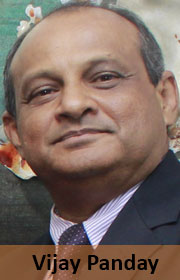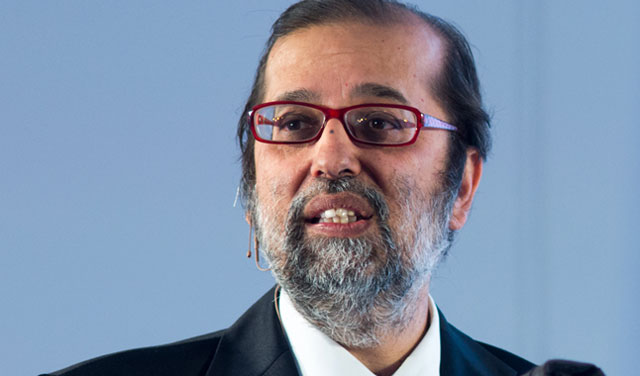 Two crucial constituencies have been ignored in communications minister Yunus Carrim’s rather ill-tempered response over the past few weeks to questions about his policy on the digital migration of South African television services.
Two crucial constituencies have been ignored in communications minister Yunus Carrim’s rather ill-tempered response over the past few weeks to questions about his policy on the digital migration of South African television services.
Instead of acknowledging the many deficiencies in the option being pursued by government — to put costly encryption software in the set-top boxes that millions of citizens will require to watch free-to-air television channels like such as those provided by the SABC and e.tv — the department of communications has chosen rather to question the credentials of just one of his critics, MultiChoice.
In doing so, it has turned a deaf ear to the views of two of the constituencies most endangered by the encryption option: South Africa’s emerging black-owned electronics sector and the country’s rapidly-expanding community television sector.
We have no mandate to speak on behalf of community TV stations, but it is worth reminding the department of communications of a statement by their representative body, ACT-SA, last week warning that government’s preferred option “will undoubtedly contribute to killing off the community television sector at this early stage of its life”.
 ACT-SA represents all existing community television licensees in South Africa, namely Soweto TV, Cape Town TV, Bay TV, One KZN, Tshwane TV, North West TV and Bara TV. It fills a critical gap in South Africa’s commercially dominated broadcasting landscape — yet their channels could become unaffordable and unaccessible because of a decision by a government which professes to support the growth of the community media sector.
ACT-SA represents all existing community television licensees in South Africa, namely Soweto TV, Cape Town TV, Bay TV, One KZN, Tshwane TV, North West TV and Bara TV. It fills a critical gap in South Africa’s commercially dominated broadcasting landscape — yet their channels could become unaffordable and unaccessible because of a decision by a government which professes to support the growth of the community media sector.
Similar arguments apply in the case of the organisation we lead, the National Association of Manufacturers in Electronic Components (Namec).
In a meeting with minister Carrim’s predecessor last April, Namec and a notable coalition of social partners who are shareholders in Namec Holdings — including the MK Military Veterans’ Association, the SA National Civic Organisation, the Congress of Traditional Leaders, the Progressive Women’s Movement of South Africa and the Disability Trust — unilaterally agreed that there should not be any form of encryption in set-top boxes.
We are united in believing that this option provides an unfair advantage to foreign competitors and shuts out the local electronic components industry.
Conditional access or set-top box control will harm, rather than help black manufacturers.
It will increase the barrier to entry; new emerging black manufacturers will need to be accredited by a conditional access vendor (which could take up a substantial amount of time) before they can even start to manufacture the boxes that have this software. The compliance issues and lengthy and expensive certification processes alone will set emerging manufacturers back another two to three years. This will certainly set us back in meeting the 2015 deadlines set by the International Telecommunication Union.
Sadly, the minister has not made mention of this in any of his public engagements, but disingenuously accuses his critics of trying to delay the process.
Set-top box control is also not the way to support local manufacturing. The department of trade & industry has already introduced initiatives to ensure that local manufacturers reap optimal benefits from migration process — a 15% duty on imported boxes, for example, and a local content requirement for all boxes procured by government.
The South African Bureau of Standards, the Independent Communications Authority of South Africa and other regulatory bodies, as well as strict control certification procedures, will halt these “cheap” imports. Does the department of communications seriously believe that the “low-cost and cheap” manufacturers around the world that it seems threatened by will not be able to create whatever set-top box control mechanism or conditional access system is introduced?

We do not need not unnecessary foreign technology that will be a nightmare to manage for the rest of our lives.
The technology that minister Carrim favours does not exist anywhere in Africa. No black-owned company in South Africa can provide it; the suppliers will all have to come from outside South Africa, which means manufacturers will be controlled by these people and will be paying them royalties forever.
The encrypted option will also not halt the importation of cheap set-top boxes, as the department claims. What will stop it are strict local tests, duties, and the validation of local set-top boxes.
To be frank, the option favoured by government goes against broad-based black economic empowerment and does not address the issue of protecting the local manufacturing industry or stopping cheap imports.
Surely, this is not the legacy minister Carrim intends to leave South Africa when he eventually leaves office?
- Keith Thabo and Vijay Panday are president and CEO of Namec respectively




